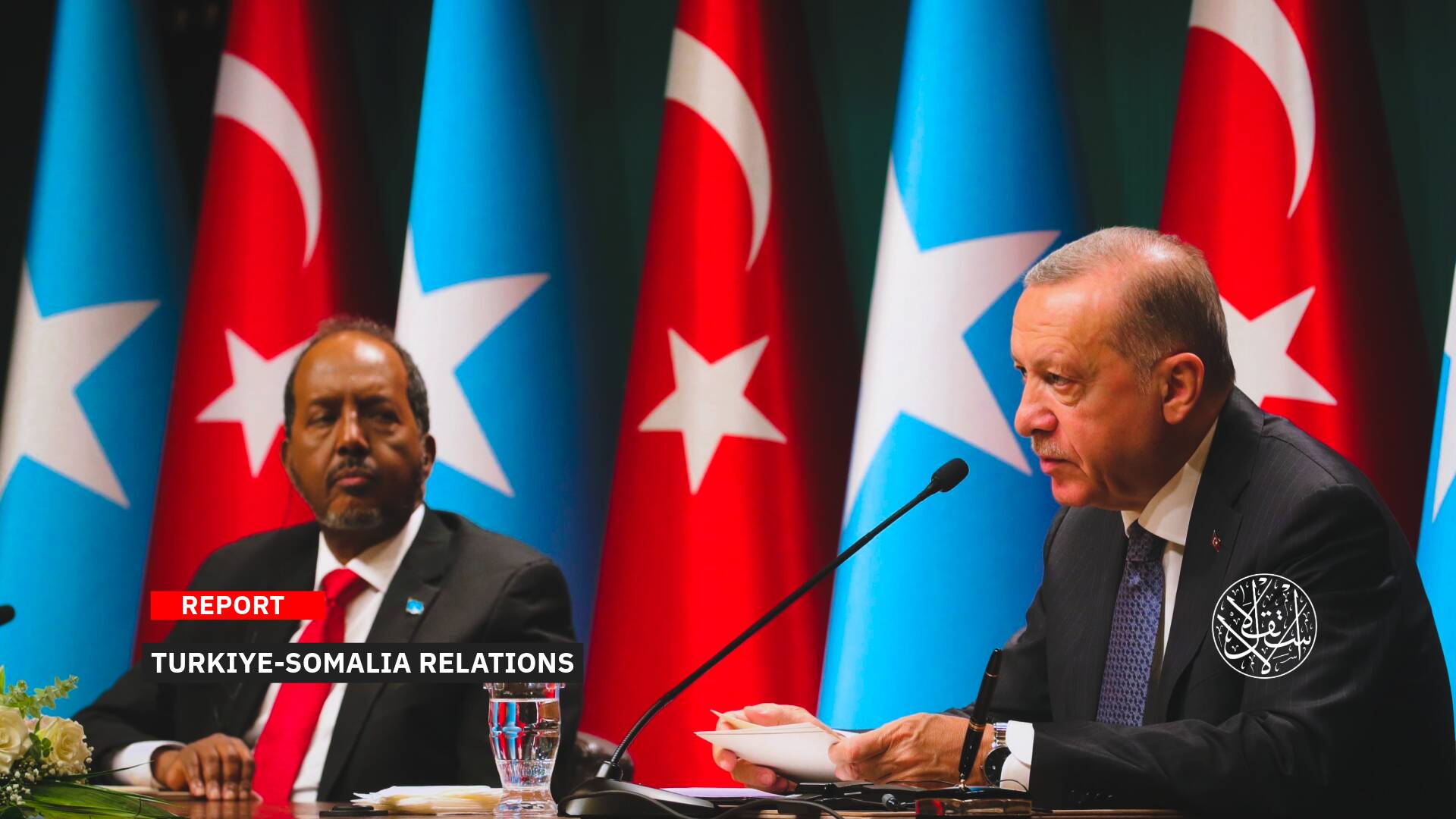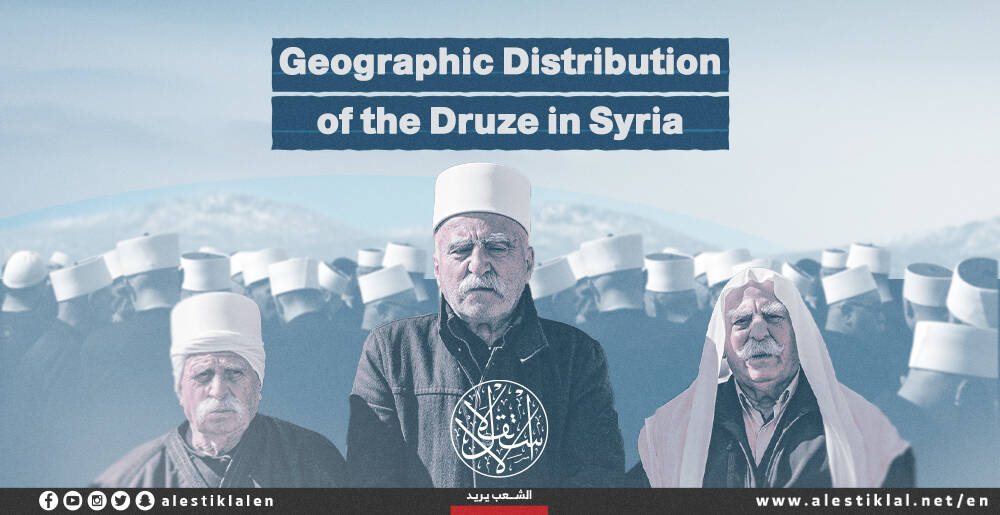Are We on the Verge of a New Global Cold War?

U.S. magazine Foreign Policy published a report by Michael Hirsh, the magazine's chief correspondent, highlighting a new type of Cold War brewing on the world stage with multidimensional relationships.
At the beginning of his report, the author recalls the speech of Winston Churchill, the former British Prime Minister, in 1946, when he outlined the contours and dangers of the first Cold War.
Churchill did not only talk about Europe, he said: "An iron curtain has landed on the European continent from Two States on the Baltic Sea to Trieste on the Adriatic Sea," and in his speech, Churchill warned of the "next ghost" of authoritarian regimes "both in the West and east."
In other words, the nascent cold war was becoming global, even at the outset. That cold war may have ended three decades ago.
But another completely different kind of cold war is now beginning, a kind that is about to become global as well.
NATO leaders met this week with a focus on the Indian and Pacific region, as they prepare to confront China and Russia. The new cold war features, which will continue for generations to come, appear to be being planned at the summit of the Indian and the Pacific Oceans.
New Kind
In contrast to the 40-year confrontation between the United States and the Soviet Union, which was between two great powers completely isolated from each other in separate areas, the new Cold War has a multidimensional relationship, in which China and the West deal with each other commercially and investment-wise despite their rivalry, and in which Russia, China's authoritarian and anti-American partner, can continue despite harsh sanctions imposed on it by supplying oil, gas, and grain to the other side.
In response to the question: What is the cause of this war? The author replies: First, Washington has undergone a shift in its long-standing partisan policy of active engagement with China — by seeking to turn Beijing into an "influential party" in the world order.
Robert Zoellick, former Vice Secretary of State of President George W. Bush, assured that turning China into a partisan policy based on relentless confrontation, and because of the impact of the shock of the Russian invasion of Ukraine, Washington seems to be seeking to plunge Europe, which was previously reluctant, into that confrontation with it.
Washington's new strategic concept arose from a statement issued a year ago after the recent NATO summit, warning that "China's stated ambitions and behavior pose comprehensive challenges to the rules of the international order and areas related to NATO security."
At the time, Europe's leaders were still resisting America's appeals to address Beijing's strategic challenges, and Angela Merkel, the former German chancellor, spent many of her 16 years in office working to strengthen relations with China, and the Russian invasion of Ukraine, with China's approval, radically changed that approach.
Olaf Scholz, the German chancellor, along with U.S. President Joe Biden, and other G7 leaders, announced a $600 billion global infrastructure funding initiative to counter China's Belt and Road Initiative, and NATO announced a 10-year "new strategic concept" aimed at addressing Chinese threats.
New Iron Curtain
According to Hirsh, major Western powers now appear to believe that a new iron curtain has landed on the world, from Mariupol in Ukraine on the Black Sea to Taipei in Taiwan on the Taiwan Strait, possibly all the way to Honiara in the Solomon Islands in the South Pacific.
"NATO is moving toward a cold war situation to some extent," said Max Bergman, director of the Europe Program at the Center for Strategic and International Studies.
When it comes to Asia, this new curtain lies with established Western allies and strong democratic states, such as Japan, Australia, and South Korea, and across from Russia and China, authoritarian regimes that show no remorse, such as Belarus, Pakistan, and North Korea.
More broadly, the United States and its allies may now face a combination of two nuclear powers, with George Beebe, a former senior Russian affairs analyst at the CIA, saying that "resource-rich Russia is partnering with a technically and economically strong China" and, again, the features and risks are not as clear as they were during the First Cold War, even when the world witnessed the rise of the new non-aligned bloc.
“The ideological clash between communism and democracy/capitalism during the Cold War era was clear; on the contrary, Biden's attempt to frame the conflict as a global struggle for freedom is not supported by most countries of the world,” Hirsh wrote.
“And the economy, which continues to be globalized, plays a key role, particularly since a rising China relies heavily on it for its growth; and a much vulnerable Russia relies on China for its economic safety,” he added.
As Jens Stoltenberg, secretary general of NATO said, "We do not consider China an adversary, but we have to recognize the reality of China's rise and understand that they are investing heavily in new modern military capabilities, including expanding their nuclear capabilities, investing in destructive techniques, and also trying to control Europe's vital infrastructure, all of which underscores the importance of addressing these issues," but so far, we don't know how NATO will deal with this dilemma.
On the other hand, what is happening may be inevitable, and Biden and his Western and Asian allies may simply deal with the realities on the ground by accepting and confronting them, but the world may also see a lack of imagination and political courage from the President and major powers, which means that the way out of the crisis will be negotiated.
This may not be possible at present with Russia, but after all, it is a smaller partner for China, dependent on generous assistance from Beijing, and the relationship between the West and China exists at many different levels, including the common need to address the climate change crisis and open trade, so that some kind of temporary settlement can be reached under the current international system.
By contrast, Washington succumbs to despair, and in a recent article in Foreign Affairs entitled The Hollow Order: Rebuilding an International System That Works, Philip Zelikow, a former senior official in the George W. Bush administration, wrote that "the need for a new world order is clearly apparent," and this is clearly nonsense.
















